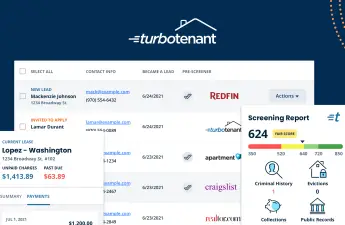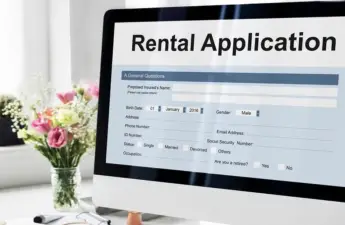How does coronavirus affect landlords?
The unfolding public health crisis resulting from the coronavirus (COVID-19) respiratory disease is rapidly evolving and creating a huge amount of uncertainty. While we don’t know how this goes from here or when the spread will come to end, it is becoming clear the economic impact is likely to be massive.
In some of the hardest hit areas, people are advised to work from home where possible, schools have closed, sporting events and any other large gatherings have been cancelled. In some states, restaurants are being forced to close and many more localities are likely to follow suit.
We are not going to debate whether the response has been adequate or appropriate, but it is certain these actions will have a negative impact on many businesses in our communities. While Amazon’s salaried employees, for instance, may work from home, what happens to those small businesses and hourly employees based in and around corporate headquarters, such as custodial workers, service staff, food truck operators, and restaurant workers to name just a few? When schools are closed, contract teachers and staff will continue to get paid, but how about the hourly staff and part-time employees? These workers will likely be affected the most and may have the hardest time compensating for lost business and missed paychecks.
What does this mean for landlords?
In high cost-of-living cities, many renters pay more than 30% of their income on housing. A missed paycheck or two can easily lead to more tenants being unable to pay their rent.
Governments and tenant advocacy groups in some places are calling for emergency moratoriums and bans on rent-related evictions of tenants affected by coronavirus. Even some landlord groups such as the Rental Housing Association of Washington (RHAWA) and the Washington Multi-Family Housing Association (WMFHA) recommend an emergency halt to the enforcement of evictions in King County, one of the hardest hit areas in the country. King County, in fact, is the perfect case study on the effects of Covid-19 on the economy, having one of the largest outbreaks in the county and also very high housing costs.
In the near future missed rent payments are likely to affect rental property owners all across the country. Many small “mom and pop” landlords depend on these payments as their only source of income. Others may fall behind on mortgage payments as a result, and some may even face foreclosure.
What is being done?
Emergency declarations have been ordered at the federal, state and local levels which should free up some assistance to some businesses.
Many companies have promised they will continue to pay employees who cannot come to work. Others such as Uber, Salesforce, Cisco, Microsoft, Lyft, Square, Twitter, Facebook, Google, and Apple, have also committed to paying their hourly or seasonal employees hurt by reduced staffing requirements. Amazon has dedicated a $5 million relief fund to help those small businesses that are directly affected by Amazon employees working from home.
What can you do?
First and foremost, we encourage everyone to stay informed of their local situations and follow the recommendations of your health authorities.
As small business owners deeply integrated into our local communities, landlords can also play an important role in responding to our tenants in times of need and helping to slow the spread of COVID-19. If the fear of eviction or homelessness prevents residents from taking appropriate social distancing measures and endanger themselves and others in order to pay rent, this health crisis is sure to continue to get worse. This will have a compounding effect on you, your residents and the community at large.
Furthermore, if tenants are having trouble paying rent as a result of coronavirus, consider the cost of eviction, and whether you can even find a replacement given the current economic situation. Tenants are also unlikely to be looking to move when health risks are so scary and self-quarantine is recommended. We encourage landlords to be sympathetic and flexible with tenants who are experiencing hardship due to coronavirus. It will likely be more beneficial to work with your tenant on a payment plan, partial rent forgiveness, or other measures to keep them in their homes.
Similarly, it would be worthwhile to proactively work with your lenders if it looks like paying your mortgage might be problem. We hope that lenders will show the same sympathy and flexibility to landlords. It is probably in their best interest to receive at least partial payments instead of foreclosure.
What SHOULD we do as landlords?
This is tricky, and highly subjective. We’ve been thinking a lot about what our responsibilities are as landlords. We provide vital services to our clients (aka tenants) in exchange for their hard-earned money. Like any other business, we thrive when our clients are thriving, and suffer along with them at other times. In an ideal world we – tenants and landlords alike – would prepare for the unforeseen complications in life so that we can continue to meet our obligations. For a variety of reasons these preparations can be insufficient, especially in a crisis such as the one we’re facing now.
We don’t have an answer for everyone, but here are a few questions to consider when you’re deciding how to deal with tenants who can’t pay:
- Necessity: What do you absolutely need to do in order to meet your responsibilities and provide for your family?
- Compassion: Consider what you know about your tenants. Do they face real challenges, particularly related to the Covid-19 pandemic, that make paying rent impossible during this time?
- Community: We believe everyone needs help at some time, in some way, and that those of us who CAN help people in real need should try to find a way to do so. (This doesn’t necessarily mean free rent! Grocery shopping for an elderly or infirm tenant is an act of service as well.)
- Compromise: Consider striving for a balance between what you as a landlord need and what a tenant can do to meet his or her obligations. Partial rent forgiveness or a payment plan might be a good policy. A crisis such as Covid-19 affects everyone. Maybe it makes sense for the pain to be shared so that none of us suffer disproportionately?
- Calculus: Look at this as a business decision. As mentioned above, evicting or losing tenants during an upheaval may lose you more money than being flexible on rent payments. Evictions are slow and expensive, and vacancies take time to fill in the best of times. These are not the best of times.
Making decisions when tenants don’t pay rent
We’ve tried to provide some food for thought in this confusing time – we don’t have a universal answer! Landlords will need to assess their own situations and decide for themselves appropriate action. Let us know in the comments below if you are facing this situation and what you are doing in response.
We hope everyone is staying safe in these changing and uncertain times. Here are a few links to some useful resources:
https://www.cdc.gov/coronavirus/2019-ncov/index.html
https://www.who.int/emergencies/diseases/novel-coronavirus-2019
Photo by Christian Erfurt on Unsplash




